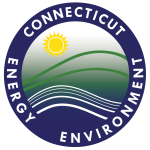Pollution Prevention (P2) Opportunities
for Schools and Universities

According to EPA, about 53 million children and 6 million adults spend a good part of their day in more than 120,000 public and private schools. Our schools, colleges and universities have the opportunity to not only lessen the environmental impact of their institutions, but to set an example for our future environmental stewards. Learn the ABCs of creating healthy and sustainable schools that can enhance learning.
| Topics |
|
Sustainability |
|
Climate Change |
|
Healthy Schools (EPA) |
|
Indoor Air Quality |
|
Food Service |
|
Pesticides and Organic Land Care |
|
Green Cleaning |
|
High Performance Schools |
|
Labs and Chemical Management |
|
Recycling |
|
Walking and Biking To School |
|
School Bus Anti-Idling |
| Sustainability |
|
| Climate Change and Energy Efficiency |
|
| Indoor Air Quality |
|
| Food Service |
|
| Pesticides and Organic Land Care |
|
| Green Cleaning |
|
| High Performance Schools |
|
| Labs and Chemical Management |
|
| Recycling |
|
| Walking And Biking To School |
|
| School Bus Anti-Idling |
|
Content last updated December 2019

